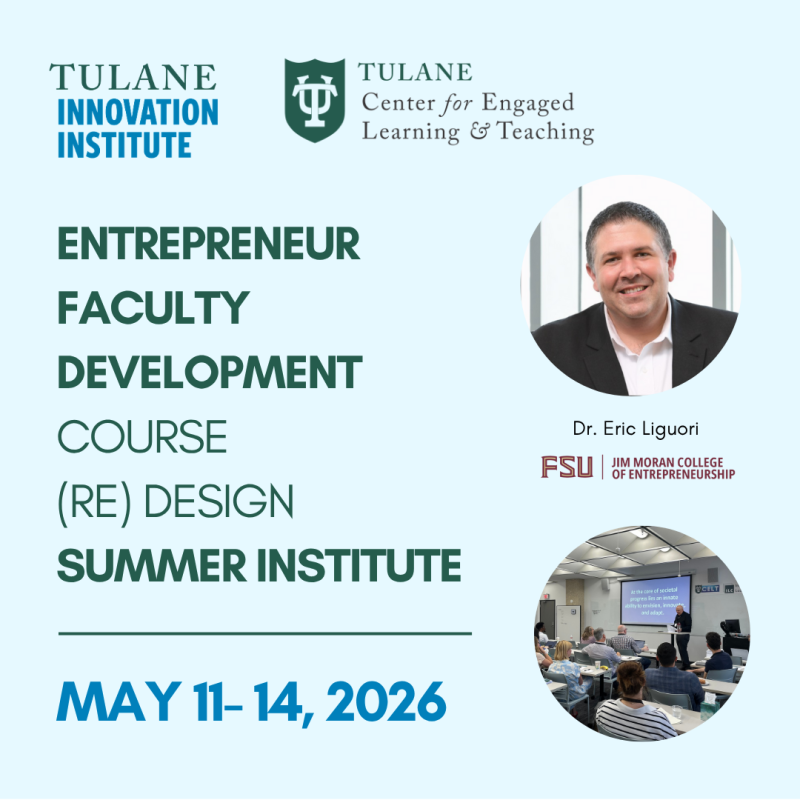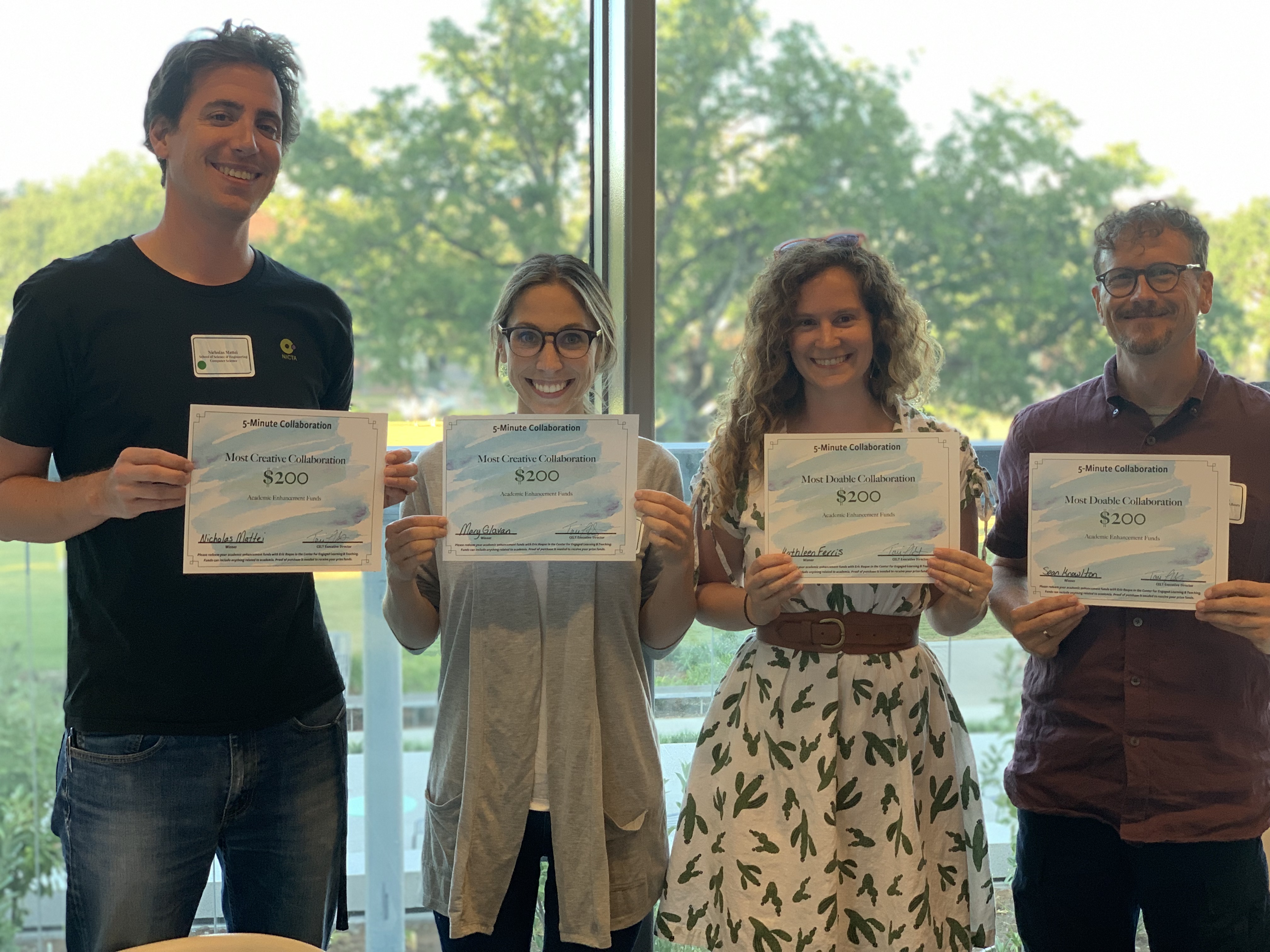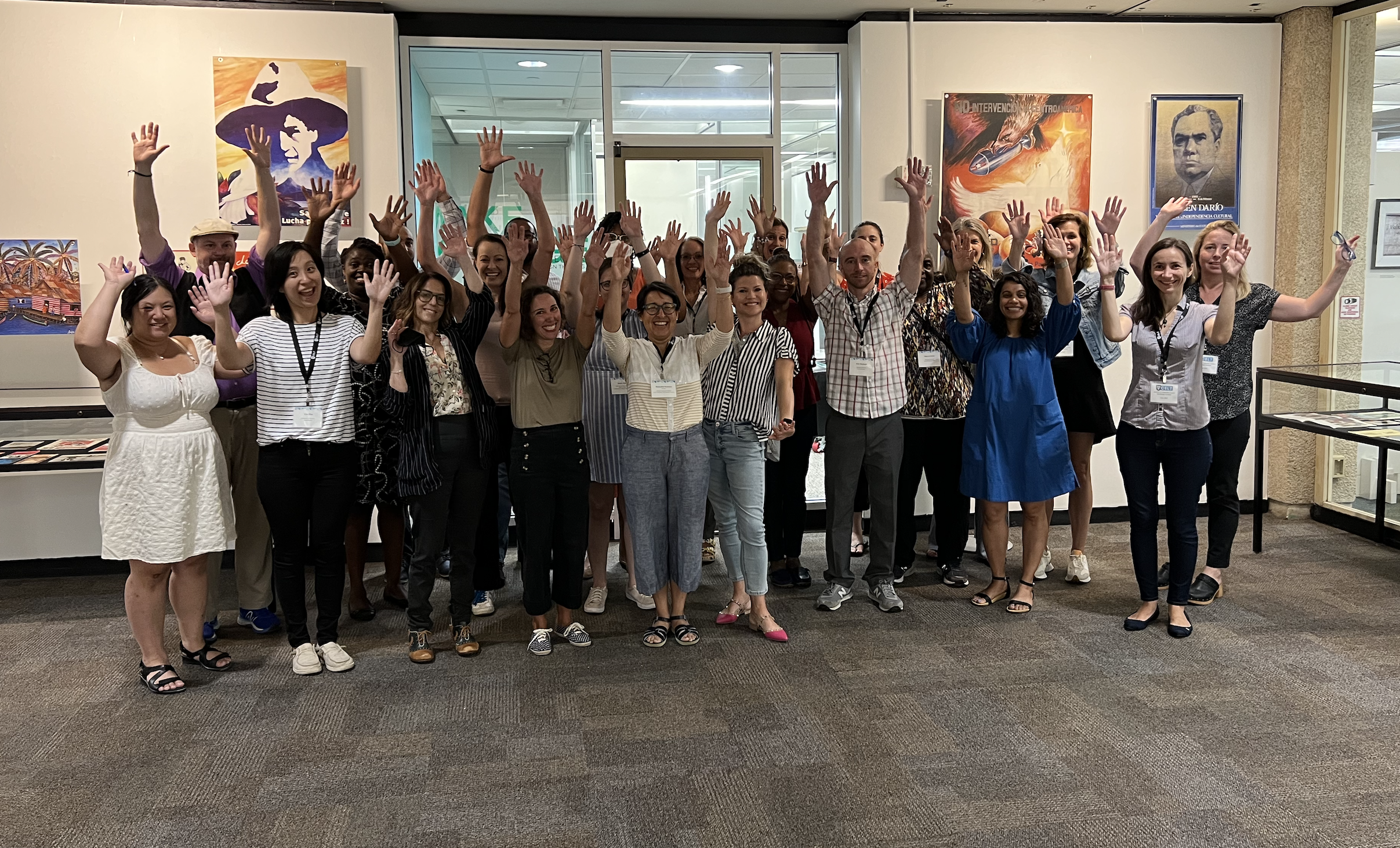The Center for Engaged Learning and Teaching (CELT) provides pedagogy workshops and seminars, book clubs, one-on-one consultations, a lending library, and assistance with teaching portfolios to faculty.
Faculty, includes full time, part time, tenure and non-tenure track positions, grad teaching assistants, and adjuncts who are currently or will be teaching at the wide range of campus locations and programs.
The proposed programs listed below are subject to change to reflect the needs and desires of Tulane’s faculty.
CELT is committed to fulfill it's Core Purpose:
To create meaningful learning through exceptional teaching.
CELT and the Innovative Learning Center is located in the Howard-Tilton Memorial Library, 7001 Freret Street, New Orleans, La [3rd Floor, Suite 300].
Open to faculty to reserve. View reservation guidelines.
CELT, in partnership with IT’s Innovative Learning Center (ILC), are hosting Fall 2025 Office Hours.
Teach Anywhere Office Hours
These are open office hours for faculty to meet with the CELT and ILC staff. We will be holding consulting hours for you to drop in online and work with us directly on your course content.
Fall 2025 Office Hours | Mondays and Thursdays | 12PM - 1PM | via ZOOM
Programs
CELT Workshops are held frequently throughout the semester on a variety of topics of interest to faculty and/or anyone engaged in the classroom. Essentially informal conversations, these workshops are led by a member of the Tulane community on a topic of their choice. This is an opportunity for faculty at all ranks, from, adjunct to full professor, as well as graduate students, postdocs, and staff who are interested to meet and talk about teaching and showcase the innovative work they’re doing in their classes, with the aim of improving the classroom experience for students. Major workshop themes include pedagogy, mentorship, diversity, technology, faculty wellness, and HR topics. Workshops are among CELT’s most popular and well-attended programs.
The CELT Faculty Book Club provides 12 educators, from across departments and schools, the opportunity to read and discuss books on a variety of pedagogy and learning theory topics. Conversations range from the macro level, how to improve the academy, to more micro topics relating to each participant’s individual class. Most importantly, the book club creates a structure in which participants can talk about teaching in a supportive environment around a common theme. The book club meets twice per semester, usually on campus. CELT purchases the books for all members.
Spring 2026 Book Club : TBA
At the end of each semester CELT hosts Faculty Grading Breaks to reward you for all your hard work. Past events have featured crepes and gelletes from Crepes Rendezvous, wine or champagne, and massage chairs. They are a great way to socialize, eat, and relax during the often stressful grading period at the end of the semester.
Spring 2026
Wednesday, May 6 | 1pm - 3pm | Registration coming soon!
CELT hosts annual Think, Design, Make workshops in partnership with the Scot Ackerman MakerSpace to bring faculty a 2 day creative workshop to introduce the MakerSpace on Tulane's uptown campus and design-thinking skills that can be used inside and outside the classroom.
Fall 2026 Think, Design, Make
TBA
Faculty Learning Communities are groups of 4 to 12 faculty members, engaged in a collaborative year-long study of a pedagogy, teaching-related, or leadership theme, held at least monthly.
The purpose of FLCs is to provide faculty with the opportunity to study a pedagogy related topic, in-depth & in a small cohort, foster interdisciplinary communication, and to produce materials (guides, workshops, scholarly articles) that can be helpful to the larger community.
AY: 2022-2023:
Incorporating Inclusive Pedagogy in a Large Class
AY: 2021-2022:
Modified and Adaptive Language Pedagogy
Data Visualization across Disciplines
AY: 2019-2020:
Inclusive Excellence: How Do We Evaluate Teaching Effectiveness and Inclusion
Digital Textbook Working Group
Applying Design Thinking Across Teaching and Learning in Multiple Disciplines
AY: 2018-2019:
Critical Service Learning
Difficult Dialogues
Teaching Large Classes
What Predicts Success in Struggling Students
Entrepreneur Faculty Development Course (Re)Design Summer Institute
Save-the-Date

Summer 2025 | May 12 - 15, 2025 | A partnership between the Tulane Innovation Institute and CELT
This four-day Faculty Course Development workshop is designed to empower educators with the tools, strategies, and resources to effectively integrate entrepreneurship education into their curriculum. Through interactive sessions, experiential exercises, and peer collaboration, participants will explore frameworks such as the Business Model Canvas and Lean Startup methodology. The program also focuses on fostering entrepreneurial mindsets across disciplines, leveraging ecosystems for student success, and designing dynamic, impactful syllabi. Guest speakers and facilitators with extensive expertise in entrepreneurship will provide practical insights to inspire innovative teaching practices.
The institute will be led by a nationally-recognized entrepreneurship scholar, Eric Ligouri, Associate Dean of the Jim Moran College of Entrepreneurship at Florida State University (https://eliguori.com/).
Pictured below are faculty who participated in the Summer 2023 Inclusive & Equitable Course (Re)Design Institute
Universal Design for Learning Academy
Are you curious about ways of thinking about teaching and learning that helps give all students an equal opportunity to succeed? Incorporating Universal Design for Learning (UDL) into the design of your class is the solution.
Summer 2025 UDL Academy - 3 day Online via Zoom
Monday, July 14 - Wednesday, July 16 | 9:30am to 12:30pm | Register to attend!
This summer academy is a collaboration with CELT, Innovative Learning Center, and Goldman Center for Student Accessibility.
5-Minute Teaching/Research Collaborations
Imagine speed dating, but instead of romantic hopefuls sitting across from each other at small tables, picture Tulane professors, eager to join forces, interested in the development of an innovative, interdisciplinary class. This workshop brings together professors hailing from many different fields of study. Each round, two professors, paired randomly, sit down for 8 minutes and develop a class or paper they could work on together. After four or five rounds, the group then votes on the most creative idea and the most actionable idea.
Previously, one of the winning titles, from Architecture and Neuroscience was “Architecture in Sickness & Health: Hospitals, Prisons, and Schools.” Another, from Art History and Cellular Biology was “Imagining and Imaging Mutants through Natural History Illustrations.”
5-Minute Research Collaboration Fall 2019 Prize Winners:
Sean Knowlton (Howard-Tilton Memorial Library) Most Doable
Kathleen Ferris (Ecology and Evolutionary Biology) Most Doable
Nicholas Mattei (Computer Science) Most Creative
Mary Glavan (English) Most Creative

Sparking Success: A Faculty Development Conference
Sparking Success is a platform where faculty of all disciplines and experience levels can share best practices, innovative approaches, and practical ideas to enhance any aspect of faculty life.
Thank you to everyone that attended the 8th Annual Sparking Success: Faculty Development Conference, Wednesday and Thursday, January 7-8, 2026 with Plenary Speaker Amy Baldwin Ed.D!
Learn more about the Sparking Success: Faculty Development Conference

